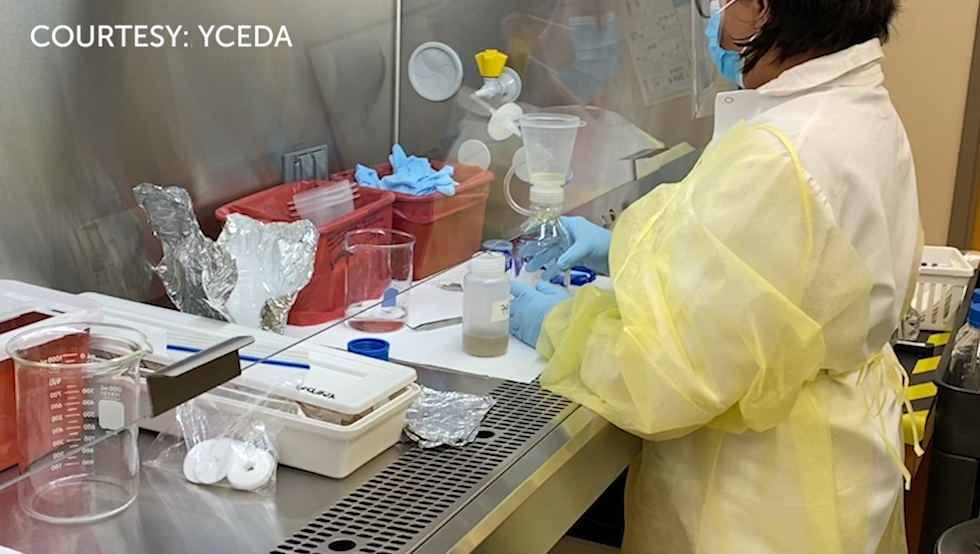Home Grown: Ag technology used for wastewater COVID detection
CBS 13's April Hettinger looks into this modern-day approach to beating the virus
YUMA, Ariz. (KYMA, KECY) - The agriculture industry is already doing what it can by supplying the nation with healthy crops to eat during the pandemic, but now it is going above and beyond to help the community detect the COVID virus before the public sees any symptoms.
The University of Arizona, the local ag industry and the community have put their heads together to make use out of ag technology. Environmental experts that used to test microorganisms in ag for food safety are now applying those skills to the current pandemic.
Dr. Bradley Schmitz, an environmental microbiologist with the Yuma Center of Excellence for Desert Agriculture (YCEDA) has nearly a decade of experience in detecting and measuring viruses in wastewater systems.
"We know that humans shed SARS-CoV-2 RNA in their feces, and so then we can detect it in their wastewater," Dr. Schmitz stated. "That gives us a measurement for how prevalent COVID-19 is."
Wastewater epidemiology was launched by YCEDA to utilize the molecular biology lab at the Yuma Agricultural Center for detecting COVID before showing symptoms.
"We concentrate the virus out of that sample, remove all of the other nasty things that is in wastewater and then use a technology to count the individual viruses," Dr. Schmitz said.
This can also be done with wastewater from a field of crops to check for bacteria like e coli.
They have been doing these tests throughout the community twice a week, particularly in ag companies to guarantee workers are healthy enough to produce much of the world's food source.
"We want to make sure that those agricultural workers are safe. Right? We want to make sure that we can prevent or advert any potential transmissions or outbreaks to ensure that the agricultural industry can continue to have their workers on-site," Dr. Schmitz explained.

YCEDA received a $500,000 grant from the Arizona Department of Health Services to fund this project.
The Yuma ag company Datepac had a small outbreak that was caught early on.
"We've been testing the Datepac packing facility where they have 200 employees and the exact same thing happened," said Paul Brierley, executive director of YCEDA. "We were testing, there was no sign of the virus and after Thanksgiving break, we detected it in the wastewater, and the same thing basically happened in the dormitories of the Arizona Western College.
This kind of molecular technology has been around for a decade but is still in its infant stages. In the future, it can be used to detect almost any disease or threat to the community.
Monday on 13 On Your Side, April Hettinger investigates the process behind wastewater COVID detection and how the local ag community is helping.
